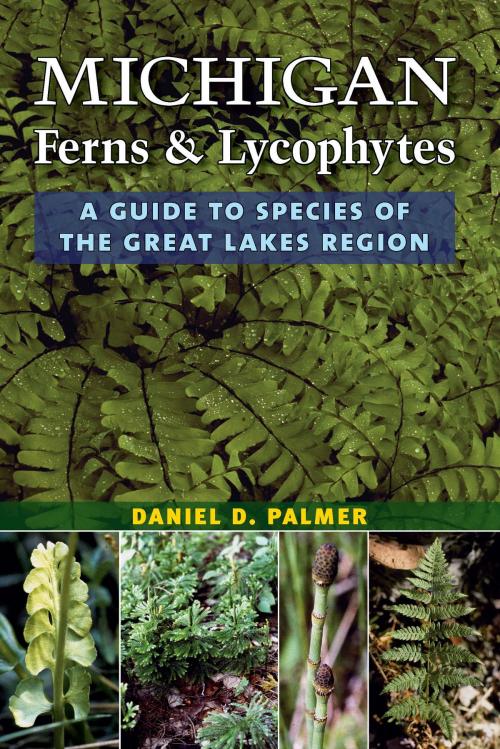Michigan Ferns and Lycophytes
A Guide to Species of the Great Lakes Region
Nonfiction, Science & Nature, Nature, Plant Life, Plants, Biography & Memoir, Reference| Author: | Daniel D Palmer | ISBN: | 9780472123650 |
| Publisher: | University of Michigan Press | Publication: | May 25, 2018 |
| Imprint: | UNIVERSITY OF MICHIGAN REGIONAL | Language: | English |
| Author: | Daniel D Palmer |
| ISBN: | 9780472123650 |
| Publisher: | University of Michigan Press |
| Publication: | May 25, 2018 |
| Imprint: | UNIVERSITY OF MICHIGAN REGIONAL |
| Language: | English |
Michigan’s ferns and lycophytes are among the state’s most fascinating plants. The species in these groups exhibit incredibly diverse life cycles and an amazing array of morphology. Some species such as the Bracken fern are widespread and aggressive, dominating forest understories throughout much of northern Michigan, while other species are exceedingly rare and adapted to life solely in harsh niche habitats where little else can grow.
Unlike the well-studied flowering plants and gymnosperms, Michigan’s ferns and lycophytes have long lacked a reliable, up-to-date guidebook, and this book fills that gap*.* Covering all 120 taxa found in the state, it features detailed keys, species descriptions, and range maps alongside precise illustrations. Readers learn about the etymology of species’ common and scientific names as well as interesting facts about their historic uses by humans and place within the Michigan ecosystem. The book also provides information on the challenging taxonomy of many ferns and lycophytes, with special attention given to the species likely to hybridize and those prone to misidentification. This is a must-have reference for anyone who wishes to learn about these important components of the Great Lakes flora.
Michigan’s ferns and lycophytes are among the state’s most fascinating plants. The species in these groups exhibit incredibly diverse life cycles and an amazing array of morphology. Some species such as the Bracken fern are widespread and aggressive, dominating forest understories throughout much of northern Michigan, while other species are exceedingly rare and adapted to life solely in harsh niche habitats where little else can grow.
Unlike the well-studied flowering plants and gymnosperms, Michigan’s ferns and lycophytes have long lacked a reliable, up-to-date guidebook, and this book fills that gap*.* Covering all 120 taxa found in the state, it features detailed keys, species descriptions, and range maps alongside precise illustrations. Readers learn about the etymology of species’ common and scientific names as well as interesting facts about their historic uses by humans and place within the Michigan ecosystem. The book also provides information on the challenging taxonomy of many ferns and lycophytes, with special attention given to the species likely to hybridize and those prone to misidentification. This is a must-have reference for anyone who wishes to learn about these important components of the Great Lakes flora.















